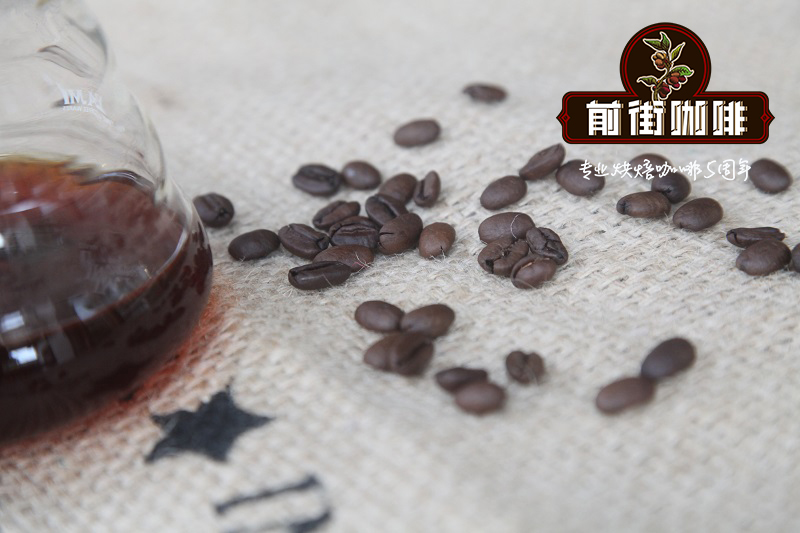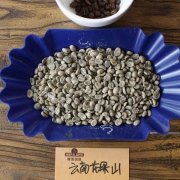The Story of Kenya Coffee beans Kenya AA are uncertified Fairtrade coffee beans

Professional coffee knowledge exchange more coffee bean information please follow the coffee workshop (Wechat official account cafe_style)
Recently, several regular customers were very happy to know that we started to sell Fairtrade beans! However, with regard to Fairtrade beans, what we pursue is the imprint of the trademark or the pursuit of the spirit of fair care.
Generally speaking, most of the popular Fairtrade beans on the market will be certified by the Fair Trade Organization. This certification can ensure that the coffee beans you buy take care of small coffee farmers in the third World. It can also help children in third World countries have books to read and coffee farmers to eat. Furthermore, I hope that they will not be like Lu Binghua's children, who have talent for painting, but because they are trapped in their father's tea production. There is not enough profit to hire people, so they can only be reduced to alternative serfs for generations.
For those who have been certified by the Fair Trade Alliance, there will be the above logo, which is from FLO. This is the largest fair trade alliance in the world.
In addition to this Fairtrade logo, there are other international certification units, including the International Fair Trade Association IFTA, the European Fair Trade Association EFTA and so on.
Kenya Coffee Bean is not a traditional coffee bean through Fair Trade Organization. This bean is synonymous with good coffee beans in the world.
This bean has a strong blueberry aroma, a variety of sour taste (will not die sour, sour is not obvious), sour and sweet front taste can also make the middle coffee sweet, become more sweet, after drinking the rhyme is also very good, and in the process, you can feel the richness of his coffee, is a great bean, the international price is also very high! Especially in recent years, his performance scores in the SCAA Cup test are also very high, and even won the list of the best coffee of the year in 2010!
AA in Kenya, which is produced in Kenya in Africa, AA represents his grade. It can only be called AA if it exceeds Smur18 (7mm) bean mesh screen. Kenya AA his beans are round and thick, but they are heat permeable, so they are less likely to bake unevenly. We test the French baking degree, or mix our signature coffee beans, and they all taste great!
However, this bean is not a fair trade bean, so some people have asked, is this coffee bean in line with our spirit?
This is about the little story of Kenyan coffee beans. Although Kenya is next to Ethiopia, the ancient kingdom of coffee, he is not as lucky as Ethiopia. He is rich in coffee genes and does not have so many excellent ancient varieties. In fact, the history of Kenyan coffee beans is not long. It was only in the 19th century that people were transplanted into coffee beans, and it was not until the early 20th century that Kenya began to grow coffee on a large scale because of the entry of Anglo-French consortia.
Kenyan coffee beans are sold through competitive bidding, and in theory, the result of the auction will be more beneficial to farmers.
However, before 2005, the processing and sale of Kenyan coffee beans could only be processed in cooperation with local coffee cooperatives, and then the cooperative alliance assisted farmers to bid at the Kenyan Coffee auction.
However, these bidders need to be licensed, and only those who have a license can bid, and the license is issued by the government. In the past, most of the people who obtained the bidding license were international bakers and middlemen.
After the bidding, the cooperative alliance will deduct the processing, transportation and service fees, and then return the remaining money to the cooperative, the cooperative will receive the money and deduct the administrative expenses, and the rest of the money will be returned to the farmers' pockets.
However, the members of these cooperative unions and cooperatives are not elected by farmers, but appointed by government officials, and the buyers are also businessmen licensed by the government. so processing requires cooperatives (the cost of coffee processing in Kenya is one of the highest in the world), sales need cooperatives, and the buyer's license is assigned and controlled by the government, and the whole design of the system from processing to auction It is easy to exploit producers (farmers), and this unfair phenomenon comes from the government!
If you are a buyer, you want to buy directly from farmers, and it is not possible for farmers to earn more. The law stipulates that you can only buy through co-operatives.
The co-operatives have too many things in their hands, and farmers have to look at the faces of these officials before they can sell them. According to the book "dispatch from coffee producing areas", it is mentioned that in the past, many farmers' money was missing and coffee beans were stolen and sold after they entered the warehouse.
Even according to the World Organization, it took more than 6 months for the money to be transferred back layer by layer after the auction.
So coffee used to be Kenya's largest source of income in 1970, but with corruption and fraud, many farmers gave up farming and production plummeted.
However, in recent years, the Kenyan government has also made a lot of efforts!
At present, the Kenyan government has broken the monopoly on the processing of coffee beans owned by cooperative unions in the past, and coffee farmers have now allowed coffee farmers to handle their own processing and sales. Coffee farmers allow cooperatives to market coffee beans and find buyers (without licences), although they still have to go through a competitive bidding system, but this also benefits farmers (because there will be competition between buyers to increase prices). Coffee beans are also graded, sending samples to buyers who are willing to buy, and then clustering to the auction system to bid for competition, so that farmers' profits are more guaranteed!
At present, Kenya also has Fairtrade Alliance coffee beans, but the beans are in good condition from time to time, and the defect rate of beans in previous shipments is as high as 26%.
Self-speculation: coffee farmers who sell themselves without cooperatives do not know whether the quality of coffee beans is unstable because Kenya's processing and production technology in the past relied too much on the quality grading system of cooperatives and the government. so it takes a little time to replenish the technology.
At present, we do not cooperate with the fair trade alliance of Kenya coffee beans, on the one hand, because the current market price of Kenya coffee beans is already frighteningly high, and on the other hand, the current auction system in Kenya, so that the production momentum of small estates is full, can also be processed by themselves to avoid cooperative monopoly, but also avoid a single buyer monopolizing all production capacity, and even higher buyers who want high-quality Kenyan coffee beans. Farmers can get reasonable profits, which is already a good spirit of fair production and marketing for us.
However, of course, we will continue to pay attention to the development of fair trade in Kenyan coffee beans, and here I sincerely explain to some consumers who have worked hard on fair trade that some consumers have responded to me. 100% of the coffee beans of the Fair Trade Alliance should be adhered to before they can be called Fairtrade beans.
Although I agree with the concept of the Fair Trade Alliance, after all, things are still for the general public to use, if the situation is not ideal, it is still difficult for us to use. For example, we all agree to support domestic products, but if there are many commodities, such as the domestic cars of the early wildebeest era, buying them back is tantamount to torturing ourselves, rather than not buying them at all.
We have a similar concept. If some Fairtrade beans are too bad, we would rather not sell them than let consumers drink them. After all, if we want everyone to support Fairtrade, we have to build on the condition that the goods are acceptable to consumers. Consumers are willing to spend a little more money, otherwise spending money is hard on their own taste base, which is not the right thing, is it?
Qianjie coffee: Guangzhou bakery, the store is small but a variety of beans, you can find a variety of unknown beans, but also provide online store services. Https://shop104210103.taobao.com
Important Notice :
前街咖啡 FrontStreet Coffee has moved to new addredd:
FrontStreet Coffee Address: 315,Donghua East Road,GuangZhou
Tel:020 38364473
- Prev

Why is Yunnan coffee called small grain coffee? How to distinguish the authenticity of Yunnan small grain coffee?
Professional coffee knowledge exchange more coffee bean information please follow the coffee workshop (Wechat official account cafe_style) Why Yunnan coffee is also called small grain coffee Q: we have three common coffee varieties: 1. Arabica 2. Robusta 3. Liberia Q: the Chinese agricultural sector classifies three varieties according to fruit size: large, medium and small. 1. Large grain origin
- Next

Drink coffee listen to the story of Starbucks Kenya coffee beans and African elephants characteristics of Kenyan coffee beans
Professional coffee knowledge exchange more coffee bean information please pay attention to the coffee workshop (Wechat official account cafe_style) Kenya is a model country for producing excellent coffee beans, Kenya produces high-altitude Arabica water beans is one of the world's top coffee beans, most Kenyan coffee beans are unified by the Kenyan coffee shop
Related
- Detailed explanation of Jadeite planting Land in Panamanian Jadeite Manor introduction to the grading system of Jadeite competitive bidding, Red bid, Green bid and Rose Summer
- Story of Coffee planting in Brenka region of Costa Rica Stonehenge Manor anaerobic heavy honey treatment of flavor mouth
- What's on the barrel of Blue Mountain Coffee beans?
- Can American coffee also pull flowers? How to use hot American style to pull out a good-looking pattern?
- Can you make a cold extract with coffee beans? What is the right proportion for cold-extracted coffee formula?
- Indonesian PWN Gold Mandrine Coffee Origin Features Flavor How to Chong? Mandolin coffee is American.
- A brief introduction to the flavor characteristics of Brazilian yellow bourbon coffee beans
- What is the effect of different water quality on the flavor of cold-extracted coffee? What kind of water is best for brewing coffee?
- Why do you think of Rose Summer whenever you mention Panamanian coffee?
- Introduction to the characteristics of authentic blue mountain coffee bean producing areas? What is the CIB Coffee Authority in Jamaica?

